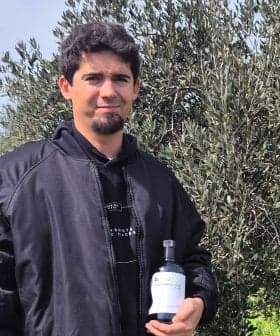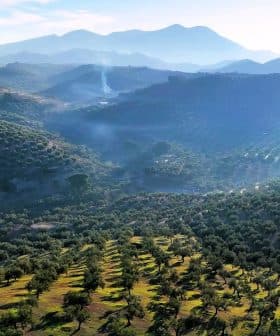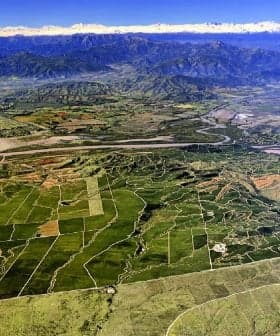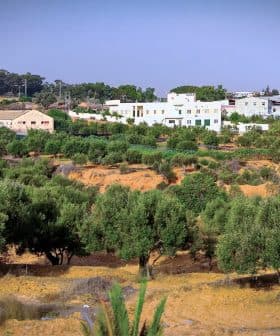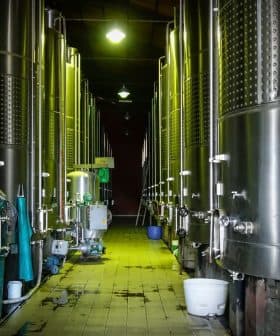The Growing Pains of Albania’s Ascendant Olive Oil Sector
Production has doubled in the past decade and is expected to continue to rise. Some worry that quality will not follow suit.
 (Photo: Donika Olive Oil)
(Photo: Donika Olive Oil)  12.0K reads
12.0K readsAlbania has seen a significant increase in olive oil production due to government investments and market forces, but concerns about maintaining quality remain. Challenges such as climatic factors, lack of modern farming practices, and a fragmented industry hinder the sector’s growth, leading experts to suggest solutions like forming cooperatives and creating a PDO for the Kalinjot variety to increase value and promote high-quality production.
Albania is poised for an olive oil production revolution, but leading experts and producers worry that quality may not keep pace.
According to Mivan Peci, a consultant for the Albanian Olive Oil Association and food engineer at Musai Olive Oil, the country has produced an annual average of 20,670 tons of olive oil in the past three years. Before 2020/21, annual production hovered between 10,000 and 13,000 tons.
“From 2009 to 2013, the Albanian government invested a lot of money in the olive oil sector,” Peci said.
See Also:Producers in Portugal Celebrate Country’s Second-Highest YieldThe government identified olives as a strategic crop since the trees grow well in the country’s Mediterranean climate and olive cultivation does not require the same capital or labor as other crops.
According to Peci, the number of olive trees in the country has increased by 30 percent, with many new trees – mostly the local Kalinjot variety and Frantoio from Italy – entering full maturity in 2021/22. He anticipates production will continue to increase over time.
“The increase in production in the past three years is due to the increase in the number of trees producing olives,” agronomist Bruno Musaj confirmed. “Albania went from eight million trees producing olives to about 12 million.”
(Musaj spoke to Olive Oil Times through two translators in separate interviews: Bianti Danaj, founder of Donika Olive Oil, and Kejda Musaj, his sister and marketing manager of Musai Olive Oil. He is head of production for both companies.)
“The government helped many Albanian farmers through grants to increase their production and adopt better olive cultivation, production and storage methods,” Musaj added. He also expects production to continue rising in the coming years.
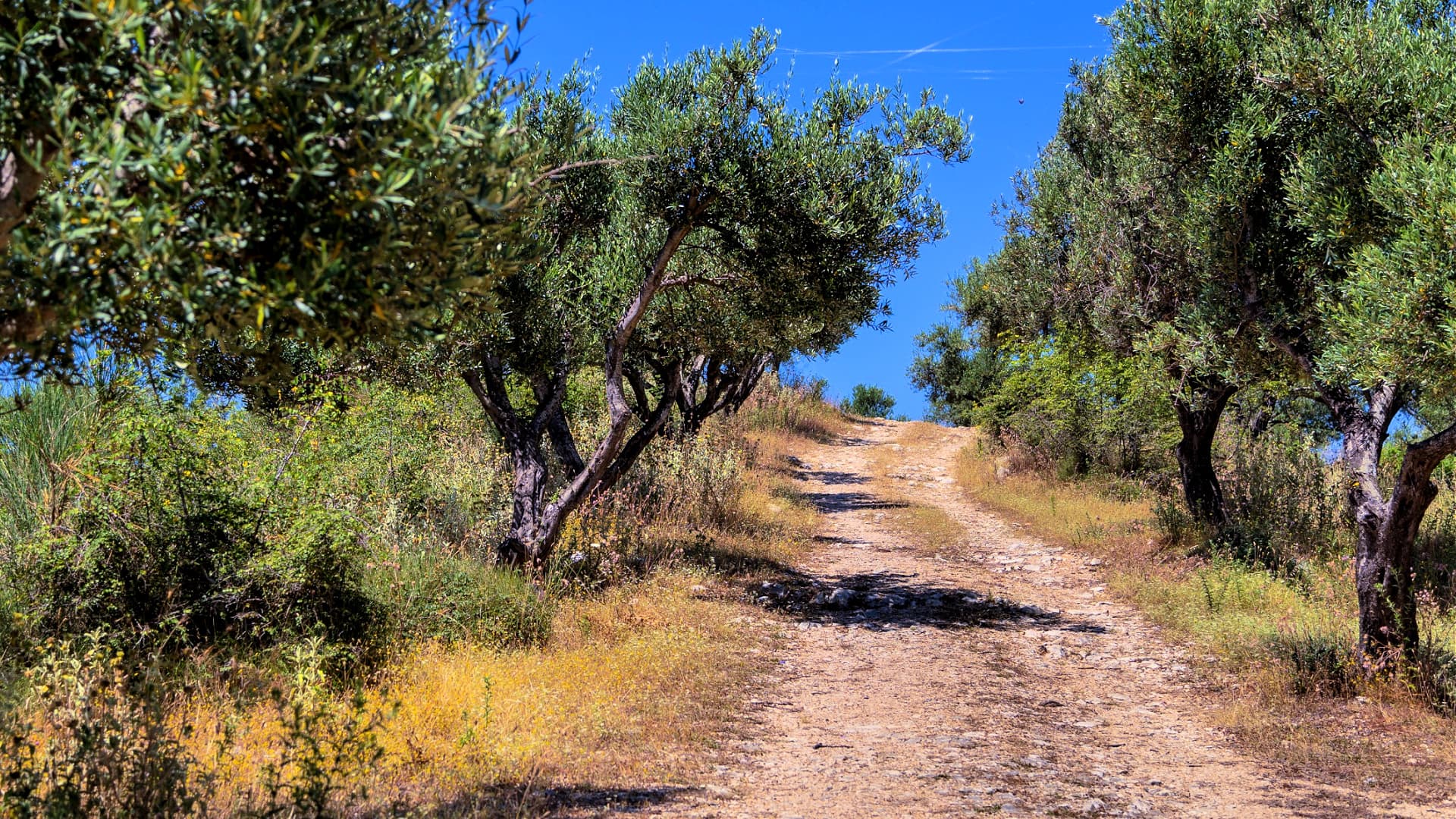
Olives grove located in southern Albania
According to Danaj, market forces also contributed to rising production. As global demand for olive oil increased, many Albanian farmers found growing olives appealing. At the same time, the government also invested in new olive mills to increase the quality of olive oil produced.
“As of 2022, there were 480 processing lines in Albania, of which 160 are new, with new technology – mostly from Pieralisi and Alfa Laval – and they produce high-quality extra virgin olive oil,” Peci said.
Olive oil yields are trending upward, but production in the 2023/24 crop year is anticipated to decrease for a second consecutive year. After reaching a record-high 26,000 tons in 2021/22, production fell to 20,000 tons in 2022/23 and is expected to reach just 16,000 tons in the current harvest.
“The production decline is mostly explained by climatic factors,” Peci said. Over the past two years, the historic drought experienced across the Mediterranean basin prevented most of the trees from developing new buds, limiting the amount of olives they could bear.
Along with the drought, Peci said Albania normally experiences large swings between the ‘on’ and ‘off-years’ in the natural alternate bearing cycle of the olive trees due to poor agronomic practices.
On and off years
Olive trees have a natural cycle of alternating high and low production years, known as “on-years” and “off-years,” respectively. During an “on-year,” the olive trees bear a greater quantity of fruit, resulting in increased olive oil production. This is influenced by various factors, including weather conditions, such as rainfall and temperature, as well as the tree’s age and overall health. Conversely, an “off-year” is characterized by a reduced yield of olives. This can occur due to factors like stress from the previous on year, poor agronomic practices, unfavorable weather conditions or natural fluctuations in the tree’s productivity.
While there has been some improvement in recent years, Peci said most farmers are still not using the best pruning techniques, fertilizing their olive trees or removing unharvested fruits, all of which have contributed to the consecutive production declines.
Musaj also worries that the government’s significant investment in modern mills has not been accompanied by adequate training programs, meaning many informally trained millers will not get the most out of their modern equipment.
These factors are all part of the growing pains that Peci, Musaj and others believe the Albanian olive oil sector faces.
One of the main obstacles to overcoming these growing pains is the highly fragmented nature of the country’s olive farms, most of which are located in the hilly regions of Vlorë County in the south.
“In 1990, the government gave each family 1.2 hectares of land, so it is very difficult to harvest efficiently,” Musaj said. “Additionally, most of the Kalinjot trees are located in the hills, so it is almost impossible to do machine harvesting.”
Peci said the solution to this problem would be for farmers to form cooperatives and associations, lowering production costs and allowing farmers to invest in mechanizing the harvest.
For its part, Danaj said Donika Olive Oil only purchases hand-harvested certified organic olives, which are milled within three hours. As a result, he cites finding enough labor as another challenge the company has faced in recent years.
“A lot of Albanians that would have worked on these farms have migrated because they want a better life in Western Europe or the United States,” Danaj said. The exodus of workers has resulted in shortages, forcing companies to pay higher wages and increasing the cost of production.
Due to Albania’s prevailing olive oil culture and economic situation, Danaj said that most Albanians are unwilling to pay high prices for local extra virgin olive oil.
“Albania produces a lot of olive oil [for a country with fewer than three million people], and everybody has some type of connection to a person who produces olive oil,” he said. “Since olive oil is abundant, it’s very hard to differentiate or to tell people that our olive oil is better than your uncle’s olive oil.”
As a result, Danaj focuses on exports and is currently in talks with partners in the United Kingdom, Australia and the United States, noting that interest has also come from China and Japan.
Musai Olive Oil, which has a modern mill located amidst neighboring olive groves, follows a very similar business model. The company, which produced the award-winning The Illyrian Press brand, also exports to the U.S. and northern European countries.
However, high olive oil prices over the previous two years have also hampered efforts to promote individual-packaged extra virgin olive oil exports.
These prices have incentivized farmers to focus on quantity over quality. The vast majority of this olive oil is exported in bulk to Italy to be packaged and resold.
Even Donika and Musai took advantage of the situation. “Market prices have been very good for the average Albanian farmer,” Danaj said.
Peci sees two possible solutions to the problem of high production costs, which contribute to lower domestic sales.
“For more than 10 years, the Albanian government has not subsidized the production of extra virgin olive oil,” he said. Previously, the government gave producers the equivalent of €1 per liter of extra virgin olive oil produced.
“This does not push farmers and mills to strive for high-quality olive oil,” Peci added. “Subsidizing high-quality production may lower the price for internal consumption as well.”
The other solution is lobbying to create an Albanian Protected Designation of Origin (PDO), which he said would add value to the product and the Kalinjot variety. The country already has 36 wines protected by the European Union with PDOs.
Along with Peci and the Musaj siblings, Danaj believes Albania must create a culture around high-quality extra virgin olive oil production focussed around the Kalinjot, which is naturally high in polyphenols and features a distinct robust flavor with accentuated earthy and bitter notes.
“We hope to shine light on our precious Kalinjot olive variety, which cannot be found anywhere in the world but Albania, and holds a unique story and significance to our culture,” Danaj concluded.
Share this article



